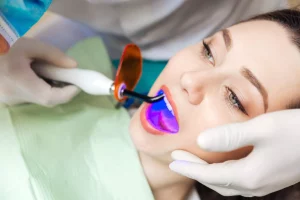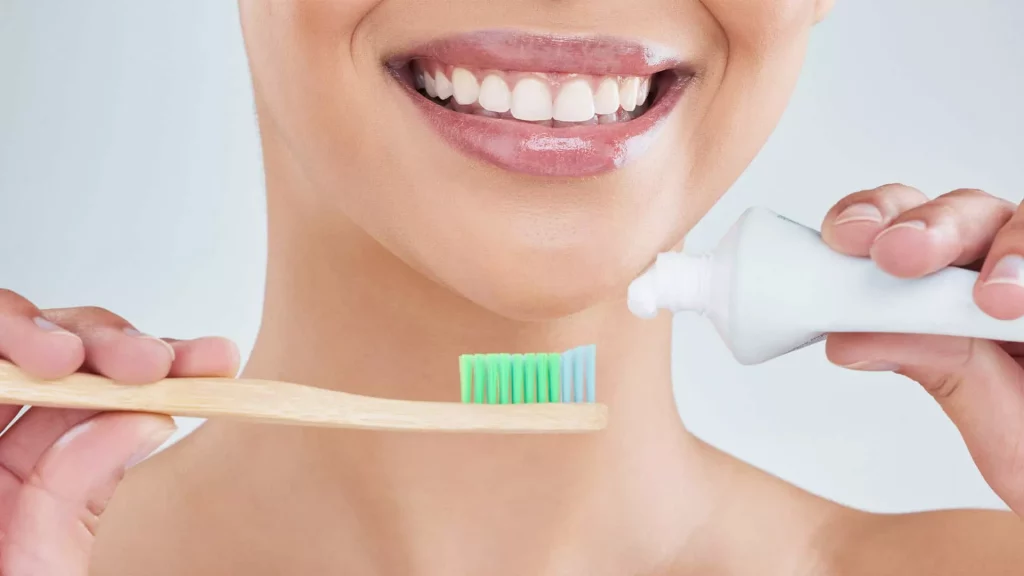Last Updated on: 5th December 2024, 09:15 am
Nifedipine is a medication that can be prescribed to treat high blood pressure and control angina. It lowers blood pressure by relaxing blood vessels, allowing the heart to pump blood with less force. Nifedipine can also be used to prevent premature births and Raynaud’s syndrome (a feeling of numbness and coldness in certain areas of the body). It is not an over-the-counter medication and should always be prescribed by a doctor. We’ll discuss below the relationship between nifedipine and dental health.
What is high blood pressure?
The term high blood pressure is used to describe elevated blood pressure levels, which, when left untreated, can cause damage to the brain, heart, blood vessels, kidneys, and other parts of the body, leading to heart attacks, strokes, eye problems, and other health issues.
Nifedipine is one of the medications used to treat high blood pressure, acting mainly by relaxing the heart muscle and blood vessel tension. This medication should be prescribed by the treating physician, and the dose and administration instructions depend on the diagnosis.

How do Nifedipine and dental health affect each other?
It has been identified in several patients that the use of nifedipine can provoke some reactions in the tissues that make up the oral cavity. In these patients, an enlargement of the gums was identified, and it was more evident in those patients who had been taking the medication for a longer time. Examinations revealed that at the cellular level, there was an enlargement of the gum cells, making it necessary to withdraw the medication and replace it with another, despite blood pressure and/or arrhythmia being controlled, as an association was found between gingival enlargement and the medication’s consumption.
However, different factors must be taken into account that may predispose a person to present gingival enlargement:
- Age
- Genetic predisposition
- Pharmacological actions
- Dose
- Accumulation of bacterial plaque (food residues)
- Oral hygiene
Generally, the gum response disappears with the suspension of the medication or with a dosage adjustment. Oral hygiene should also be controlled to avoid complications such as periodontal disease.
Its use is mainly given in adults, and its effectiveness and safety have not been established in children. In elderly patients with liver or kidney failure, dose adjustments should be made and handled with caution due to its adverse effects.
What is gingival hyperplasia?
Gingival hyperplasia is an excessive growth of the gums due to an increase in the size of the cells that make up the periodontal tissue (gingival hypertrophy) or an increase in the number of cells (gingival hyperplasia).
The increase in gum size is usually due to the response of the interaction of some medications such as antiepileptics (phenytoin), immunosuppressants (cyclosporine), calcium channel blockers (nifedipine), and high doses of oral contraceptives.
When the gum grows excessively, it creates pockets that harbor pathogenic bacteria that cannot be reached by the toothbrush or dental floss. These changes do not favor optimal oral hygiene, making the patient more susceptible to the development of periodontal disease, caries, and oral infections.
Clinically, gingival enlargements are observed as an excessive inflammation of the gums, making the tooth crowns look smaller and, in some cases, disappear. It affects the entire mouth but mainly the area of the front teeth, and it has been identified to affect the upper jaw more than the lower jaw. Hyperplasia causes pain when chewing, alterations in swallowing, speech disorders, bleeding gums, bite problems, and aesthetic alterations.
What else should be taken into account about nifedipine and dental health?
It is important to inform the dentist about any medications or pharmacological treatments that patients are taking, especially those used for hypertension, as these medications can interact with the components of anesthetics used in dental procedures, leading to hypertensive crises in patients.
How can gingival hyperplasia be prevented?
Gingival enlargement can be prevented by maintaining good oral hygiene and proper management of medication dosages. Therefore, it is important to notify the doctor or cardiologist immediately when these symptoms arise so that they can adjust the treatment dosage. Uncontrolled hypertension can cause dry mouth, increasing the risk of tooth decay due to bacterial plaque accumulation. Gingival hyperplasia can also be prevented with periodontal treatment and management with some anti-inflammatory medications.
Treatment for gingival hyperplasia
After a thorough examination by the dentist and treating physician, an appropriate treatment plan can be established. Non-surgical periodontal treatment is generally the choice for patients with mild to moderate gingival overgrowth. The mechanical removal of plaque and calculus performed by a professional has shown positive effects in reducing gingival enlargement. Good oral hygiene and home care are essential to prevent further inflammation and maintain the positive results of the treatment defined by the professional.

Surgical periodontal treatment is the choice for severe gingival overgrowth. This involves the removal of excess gum tissue, and occasionally, mechanical plaque and calculus removal are required to reduce postoperative infections. It is important to inform the dentist if the patient has been diagnosed with any cardiovascular disease and is taking any medication as if they require any dental procedure or surgery, they may need to suspend or assess the associated risks due to their clinical condition.
Contact us
If you have any questions about this or other topics, you can contact us at Channel Islands Family Dental as well as our page on Facebook. We look forward to your visit and we will make a timely diagnosis. Our dentists in Oxnard, Santa Paula, Ventura, Newbury Park, and Port Hueneme will be able to guide you toward the best treatment to take care of your health and give you back your best smile.
Bibliography
- Drugs.com (n.d.). Drugs.com. Retrieved from Nifedipine: https://www.drugs.com/mtm_esp/nifedipine.html
- Jai Sanghar Nalluswami, S. J. (August 01, 2012). Journal of pharmacy and bioallied science. Retrieved from Nifedipine-induced gingival enlargement: Correlation with dose and oral hygiene: https://www.ncbi.nlm.nih.gov/pmc/articles/PMC3467881/
- López Garví, A. J., Molina Escribano, A., Ramírez García, M. C., & Aparicio (October 01, 2007). Clinical journal of family medicine. Retrieved from Gingival overgrowth after: https://www.redalyc.org/pdf/1696/169618261011.pdf
- Ma. Angelica Michea, P. D. (December 01, 2020). International journal of interdisciplinary dentistry. Retrieved from Therapeutic Approach of Gingival Enlargement Influenced by Cyclosporine and Nifedipine. Case Report.: https://www.scielo.cl/scielo.php?script=sci_arttext&pid=S2452-55882020000300168&lang=pt
- Medline Plus.(10/15/2017). Medline Plus. Retrieved from Nifedipine: https://medlineplus.gov/spanish/druginfo/meds/a684028-es.html
- Medline Plus. (Feb 23, 2022). Medline Plus. Retrieved from High blood pressure in adults – hypertension: https://medlineplus.gov/spanish/ency/article/000468.htm#:~:text=Hypertensi%C3%B3n%20is%20the%20t%C3%A9term%20that,and%20other%20problems%20of%20health.
- R Livada, J. S. (June 06, 2013). Journal of Human Hypertension. Retrieved from Calcium channel blocker-induced gingival enlargement: https://www.nature.com/articles/jhh201347
- Trujillo, C. V. (April 01, 2015). ANESTHESIOLOGY FOR CARDIOVASCULAR SURGERY. Retrieved from Anesthesia in the patient with systemic arterial hypertension: https://www.medigraphic.com/pdfs/rma/cma-2015/cmas151o.pdf














